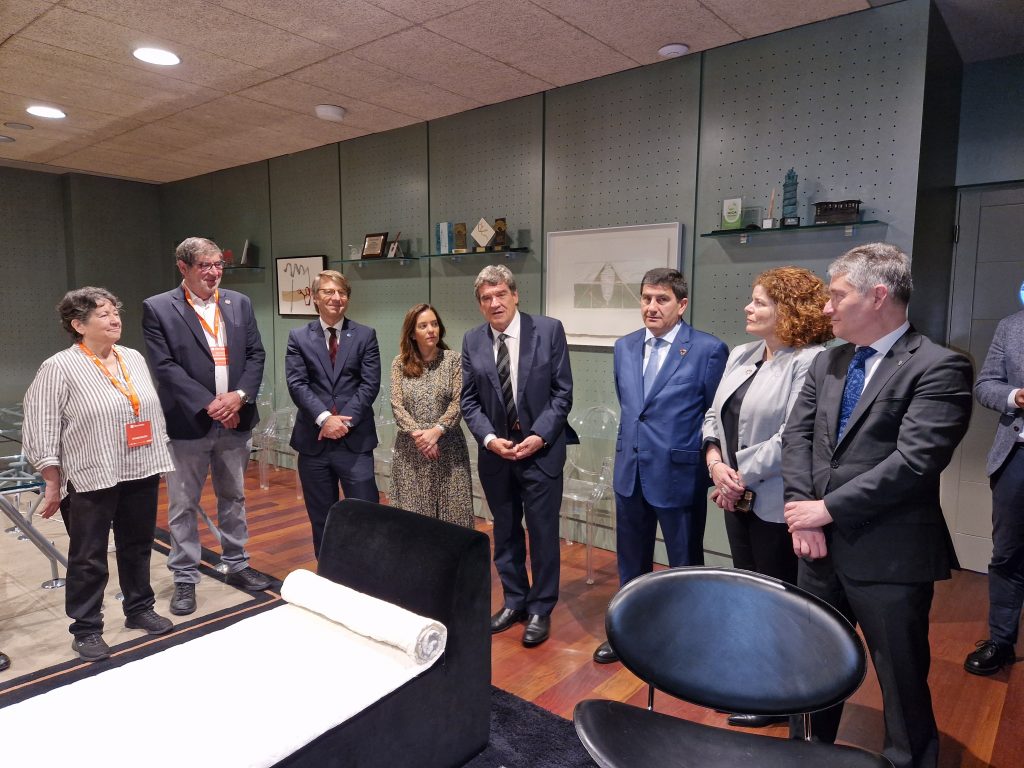
The Spanish IT Congress, the main national scientific meeting of the sector, brings together in A Coruña more than a thousand professionals
- The organizing committee of the VII Spanish Congress of Informatics is presided by Nieves R. Brisaboa and Juan Touriño Domínguez, researchers at CITIC and professors at the Faculty of Informatics of UDC.
The program scheduled for Wednesday includes the participation of CSIC scientists Ramón López de Mántaras and Carme Torras, who will talk about AI and assistive robotics.
A Coruña, June 19th, 2024.- The Spanish Congress of Informatics (CEDI) brings together during these days in A Coruña 1,100 professionals. It is a forum to promote research, institutional and business synergies, providing the opportunity to establish collaborative relationships and exchange scientific and technological knowledge.
The Minister for Digital Transformation and Public Foundation, José Luis Escrivá, participated today in the official opening ceremony of the CEDI, along with the Regional Minister of Finance and Public Administration of the Xunta de Galicia, Miguel Corgos; the rector of the University of A Coruña, Ricardo Cao; the mayor of A Coruña, Inés Rey; the president of the Computer Science Society of Spain (SCIE), Inmaculada García, and Nieves R. Brisaboa on behalf of the organizing committee of the congress.
The rector of the UDC, Ricardo Cao, emphasized that “the Cidade das TIC is an emblematic project for the technological environment of the city and Galicia, which we are proud to lead from the UDC”. In the rector’s words, it is a project that “reflects the digital transformation and the alliance between companies, universities and public administrations”. Cao also recalled CITIC’s recent award of the CIGUS seal, which recognizes it as a research center in the Galician university system. “This recognition underlines the essential role of CITIC in promoting research and knowledge transfer in our community.”
For her part, Nieves R. Brisaboa indicated that CEDI “aims to serve as a meeting point for professionals dedicated to research, development, innovation and university teaching in the field of computer engineering”. The CITIC researcher also pointed out that “CEDI has been structured as a multi-congress, so that all the fields currently involved in computer science are covered, and within each of them, the most innovative aspects with the greatest future projection are presented through communications, always from the perspective of the challenges and scientific-technological advances achieved by research in this field”.
In fact, CEDI is made up of a set of congresses that are held annually independently and that every four years are held together in the same location under the name of CEDI (Spanish Congress of Informatics), which in its VII edition takes place in A Coruña until this Friday, June 21, at the Faculty of Informatics of the UDC and at the Palace of Exhibitions and Congresses (Palexco). The organizing committee is chaired by Nieves R. Brisaboa and Juan Touriño Domínguez, researchers at CITIC and professors at the Faculty of Computer Science of the UDC, under the responsibility of the Sociedad Científica Informática de España (SCIE) which, among other tasks, is in charge of giving continuity to CEDI and awarding the National Computer Science Prizes.
CEDI joins the strategic project of the ICT City and the recent designation of A Coruña as the headquarters of the State Agency for the Supervision of Artificial Intelligence (AESIA) to place the city in particular and Galicia in general, as a reference at national and international level in the ICT field.
The Intelligence of AI and the Challenges of Assistive Robotics
The CEDI program scheduled for today includes two lectures by CSIC scientists Ramón López de Mántaras and Carme Torras, who will talk about AI and the challenges of assistive robotics, respectively.
Ramón López de Mántaras, in his talk entitled “Reflections on the intelligence of AI”, will address the fundamental differences between artificial and human intelligence, questioning the exaggerated perception of the potential of AI and highlighting that current systems lack genuine understanding of the world, as defined by Daniel Dennett with the term “skills without understanding”. López de Mántaras will stress the importance of interaction with the physical world for true understanding and will talk about the current dangers of AI, such as privacy, algorithm bias and manipulation, advocating for stricter regulation and better education about the risks and benefits of AI.
Carme Torras will speak on “The multiple facets and challenges of assistive robotics”, analyzing how assistive robotics can alleviate the burden of care in an aging population, improving the quality of life and autonomy of people with physical or cognitive limitations. Torras will focus on the challenges of human-robot interaction, including the need for reliable and personalized communication and strict safety measures for physical contact. Torras will highlight the importance of co-design with all stakeholders and will present prototypes of robots developed with these capabilities. He will also address the ethical challenges of assistive robotics and highlight educational initiatives to encourage critical thinking about these technologies, using science fiction narrative as an educational tool.
The SCIE-ZONTA-SNGULAR awards, a joint initiative of the Sociedad Científica Informática de España (SCIE), the Madrid Km0 and Andalucía Málaga clubs of ZONTA Internacional, and SNGULAR, which were born with the mission of closing the gender gap in the field of computer science in Spain, recognizing and promoting female talent in technological research, will also be presented during the event.
More information about CEDI at: https://www.congresocedi.es/





